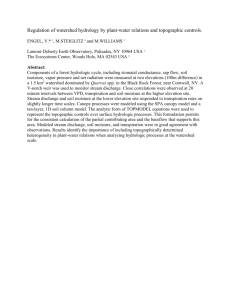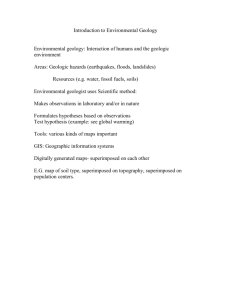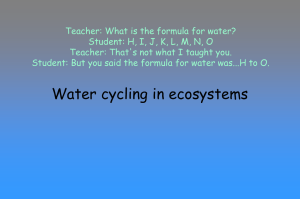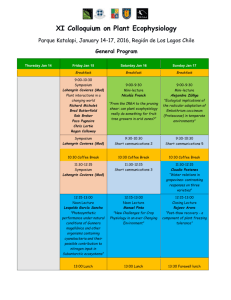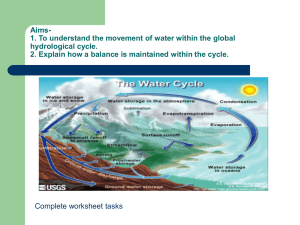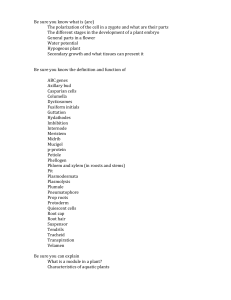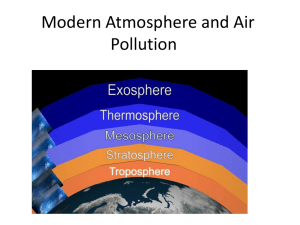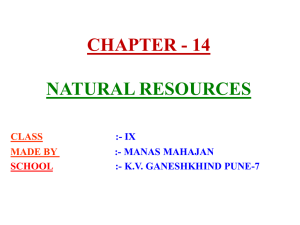general plant-water relations, wvu 2012
advertisement
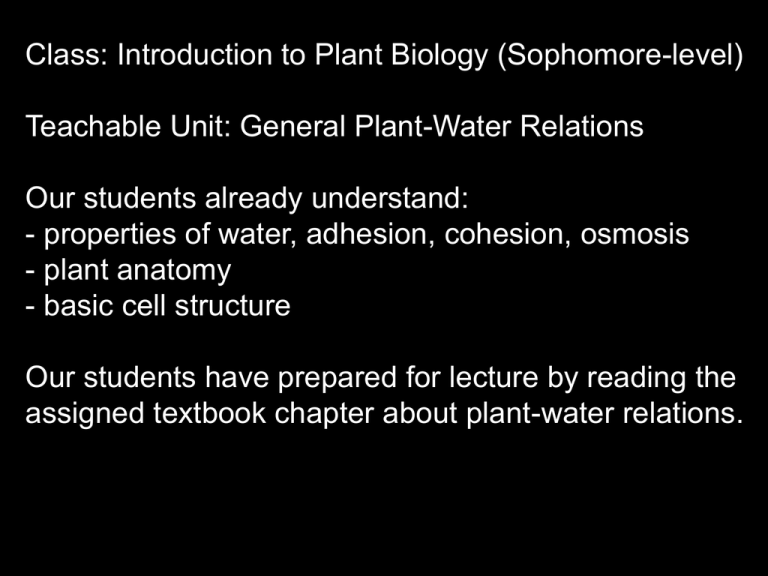
Class: Introduction to Plant Biology (Sophomore-level) Teachable Unit: General Plant-Water Relations Our students already understand: - properties of water, adhesion, cohesion, osmosis - plant anatomy - basic cell structure Our students have prepared for lecture by reading the assigned textbook chapter about plant-water relations. Learning goal: Understand how water moves through plants Learning outcomes: 1. Describe the pathway of water from soil to plant to atmosphere 2. Explain the processes that move water through plants 3. Analyze the effects of changing abiotic factors on water movement in plants Have you ever wondered? http://www.youtube.com/watch?v=w6f2BiFiXiM Group work (that we are skipping): Draw a diagram of a tree and indicate the direction/path of the water flow through the tree. - Call group representatives to draw their group drawings on board. - Elicit comments on differences - Come to group conclusion: soil, plant, atmosphere - Post the drawing Group work: Which of the following processes are involved in getting water to the top of trees? 1. 2. 3. 4. 5. Osmosis: Yes or No? Diffusion: Yes or No? Active transport: Yes or No? Capillary action: Yes or No? Cohesion-tension: Yes or No? [make sure incorrect assumptions are corrected, with more time a conversation about each] On your handout, indicate where these processes occur [Group reps post results - discussion ensues] How do trees get water to their tops? Video about evapotranspiration You observe water droplets on the margin of geranium leaves at 6 am but not at noon. Using your knowledge of plant-water relations & the information below, explain this phenomenon. 6 am 12 pm Match plants A to D with biomes 1 to 4 1. C. 2. A. 3. B. D. 4. Have students fill out the diagram collectively on single large diagram (doc-cam, big poster, etc) Teaching Strategy #1: Go through the responses with them. Does anyone disagree with certain responses? For each process from roots to shoots, segue to mini-lecture teaching slides. Let students reevaluate their drawings. Teaching Strategy #2: do mini-lecture and let students reevaluate their drawings. Mini-lecture on each of the processes -their properties -their limits in terms of movement Osmosis: gets water from soil into roots Diffusion: mainly occurs in leaf to atmosphere because the atmosphere has very little water vapor. Active transport: doesn’t occur Capillary action: gets you less than 1 meter above soil surface. Cohesion-tension: is the major mover. Group work: revise your labels and share upfront. Which processes are the most important at each point?
